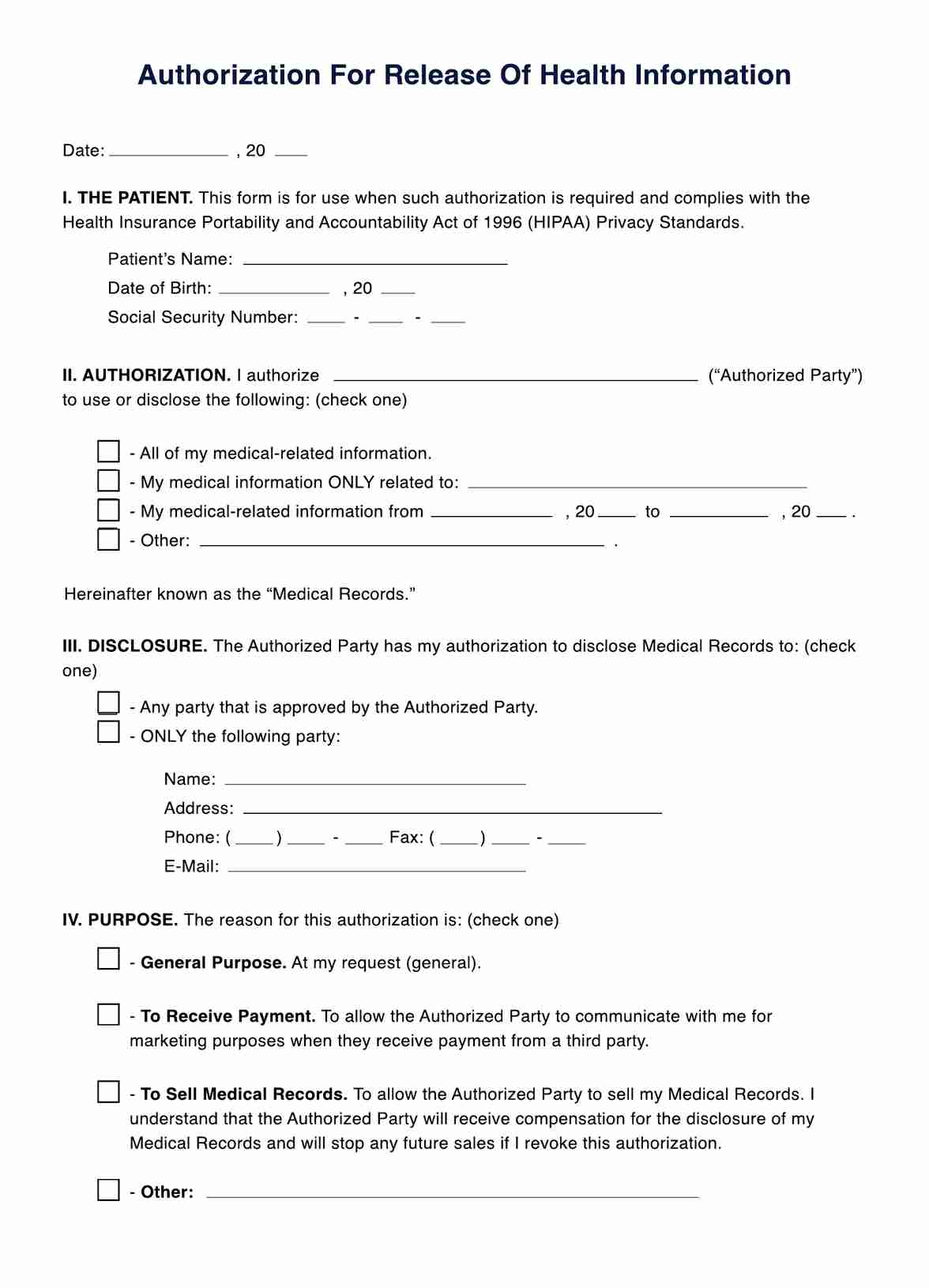Healthcare providers, insurance companies, researchers, and legal professionals often use these authorizations.

Authorization For Release Of Health Information
Understand the ins and outs of the Authorization For Release Of Health Information in our comprehensive guide. Download the free PDF today!
Authorization For Release Of Health Information Template
Commonly asked questions
It's used to obtain explicit permission from a patient or client to use or disclose their PHI for specified purposes. It's a crucial tool for complying with HIPAA regulations.
An Authorization For Release Of Health Information is typically used when a healthcare provider, insurance company, researcher, or legal professional must use or disclose a patient's protected health information (PHI).
This might occur when a patient is switching providers; an insurance company is processing a claim, a research study requires access to health data, or a legal case involving health records. Such authorization must be obtained before PHI is used or disclosed to comply with HIPAA regulations.
EHR and practice management software
Get started for free
*No credit card required
Free
$0/usd
Unlimited clients
Telehealth
1GB of storage
Client portal text
Automated billing and online payments











